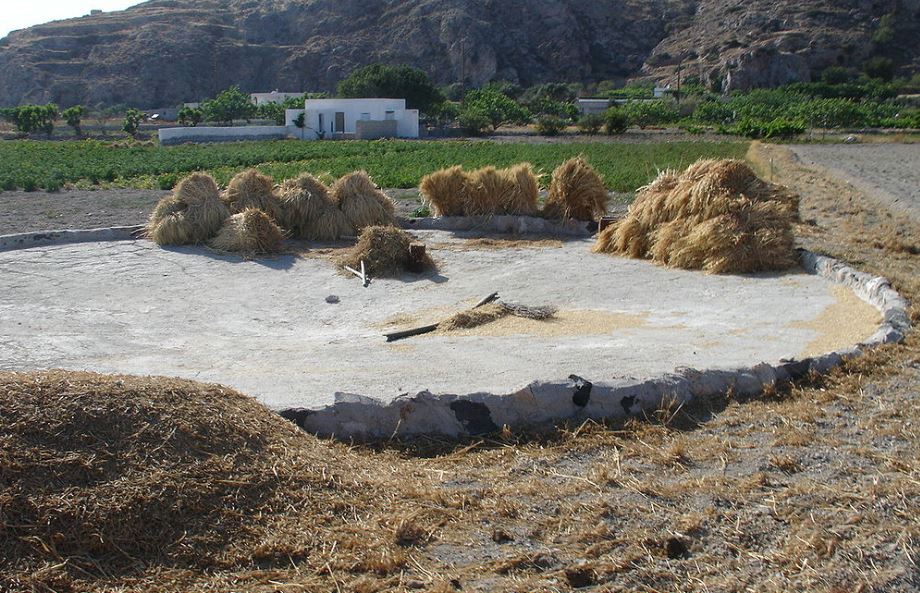In this week’s parasha, Vayechi, we read about the passing and burial of Jacob. We are told that all of Egypt mourned his death for seventy days, after which Joseph requested permission to take leave and bury his father in the Holy Land. The whole family went along for the journey (except the youngest infants), together with many high-ranking Egyptian officials and dignitaries (Genesis 50:7). Then the Torah tells us that
they came to Goren haAtad, which is beyond the Jordan, they held there a very great and solemn lamentation; and he observed a mourning period of seven days for his father. And when the Canaanite inhabitants of the land saw the mourning at Goren haAtad, they said, “This is a solemn mourning on the part of the Egyptians.” That is why it was named Avel-Mitzraim, which is beyond the Jordan. (50:10-11)
The commentators are puzzled by these perplexing verses. What is meant by Goren haAtad? Why did they bother traveling “beyond the Jordan” if they were coming up from Egypt? Why did the family mourn again, for another seven days (especially since Jacob had not even been buried yet)? Why did the Canaanites suddenly show up?
Rashi (Rabbi Shlomo Itzchaki, 1040-1105) says goren means a “threshing floor” and atad means “thorns”. But why would anyone thresh thorns? Rashi explains that the Canaanites and Ishmaelites came to wage war when they saw the massive procession coming up out of Egypt. They then saw Jacob’s coffin, and Joseph’s crown resting atop, and each of their leaders came to pay their respects, too, and hung their own crowns around the coffin. The Talmud (Sotah 13a) that Rashi quotes from says that the leaders of Esau were there, too, and altogether there were 36 crowns hung around Jacob’s coffin. This gave the whole thing an appearance like a “threshing floor surrounded by thorns”.
If we look at the design of ancient threshing floors, we find a circular flat surface, usually surrounded by rocks or a low-lying fence. The outer barrier was probably to keep away wild animals from consuming the grain that was being threshed, or to keep the oxen doing the threshing from wandering away. Instead of rocks or a fence, one could plant thorny bushes around the threshing floor for the same reason. That might explain the appearance of Jacob’s coffin in the centre, surrounded by “thorny” crowns all around.

A threshing floor in Santorini, Greece
The Kli Yakar (Rabbi Shlomo Ephraim Luntschitz, 1550-1619) isn’t too happy with this explanation. He points out that if it was common to surround threshing floors with thorns back then, why is this particular one called “the threshing floor of thorns”? He provides some alternate explanations: one has to do with the death of Jacob bringing about another famine in Egypt, while the other sees “thorns” as symbolic of wicked people whose fate is to be “threshed” and destroyed. The Torah is indeed speaking about threshing thorns here! We know that every verse in the Torah is encoding much deeper information, mystical, prophetic, and relevant for all time. So, what is the Torah really trying to tell us here? What might the “threshing floor for thorns”, this Goren haAtad, really be? Continue reading
